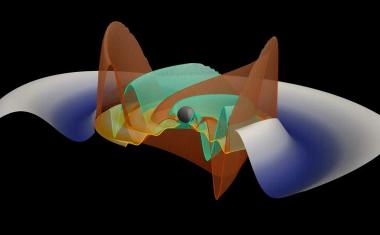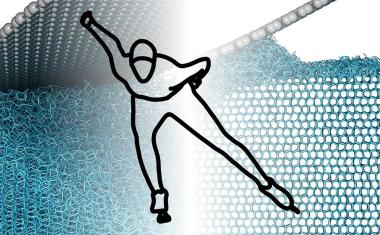Hertha Sponer: A Woman's Life as a Physicist in the 20th Century
Marie-Ann Maushart: Hertha Sponer: A Woman's Life as a Physicist in the 20th Century, Xlibris Corporation, Bloomington 2011, 288 S., geb., 29.99 $, ISBN 9781465338051
Marie-Ann Maushart

Hertha Sponer's life followed the tectonic shifts of modern physics from the Berlin of Max Planck, 1920, to the group of brilliant scientists in Gottingen, and through the impact of World War II on scientific communities in both Germany and the United States. Many of the best scientific minds of Europe and America were dedicated to modern physics and many of these minds populate Marie-Ann Maushart's biography of Hertha Sponer.
After receiving a Ph. D. working with the versatile Peter Debye, Sponer apprenticed with the soon-to-be Nobel laureate James Franck; she would follow Franck, but on her own path, from of the University of Gottingen into exile in America away from Hitler's Reich. There, she grasped the opportunity to help build up a research program in physics at the very young but ambitious Duke University. The exile of many of Europe's most prominent scientists was perhaps the most serendipitous side effect of that era's brutality. The exile was attended by much drama and in Hertha Sponer's case, real anguish. Her beloved sister, Margot, was a victim of the Nazis. New research on Margot’s fate is an addition to the material in the original German version of the biography.
Post-war and quite late in life, Sponer married her long-time mentor and friend and became Hertha Sponer-Franck. Her colleague Horst Meyer, in the foreword to the English edition, points to the extent and full impact of Sponer's accomplishments. Maushart has highlighted the influence of this brilliant but ambivalent woman's work in the development of modern chemical physics. In this book, readers will see the determined struggle of a woman who established her place in a man's world and who was appreciated for having deserved her place in that world.
This book is Ralph A. Morris’s translation of the original biography by Marie-Ann Maushart. A significant addition is the story of Hertha Sponer’s sister Margot, who was active in the anti-Nazi underground movement, contributed by Annette Vogt, Max Planck Institute for the History of Science, Berlin. This elusive material had not yet been researched at the time of the publication of the German edition. The text has been updated by Brenda P. Winnewisser, who as a graduate student at Duke University knew Sponer. Minor additions include scientific clarifications and historical notes for English language readers.













